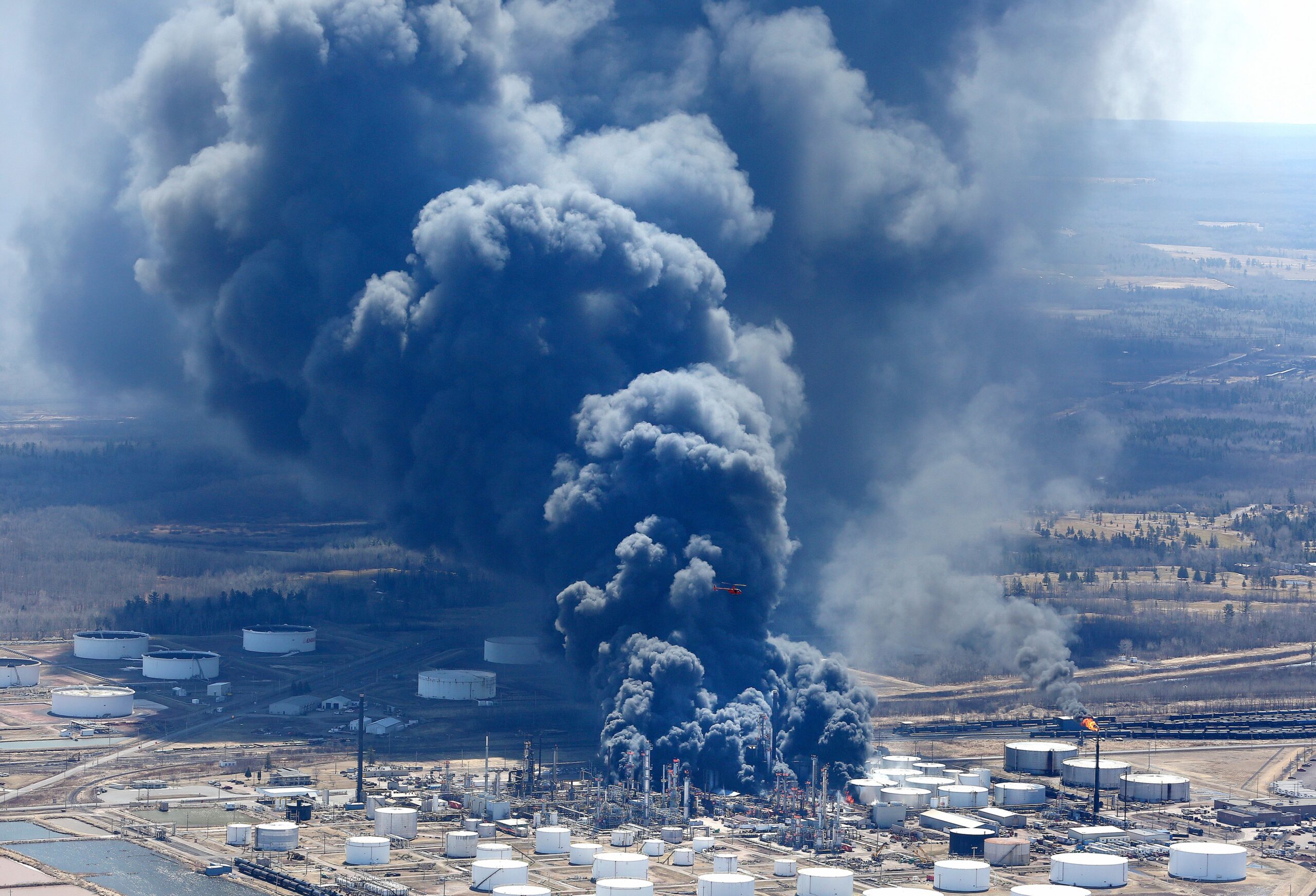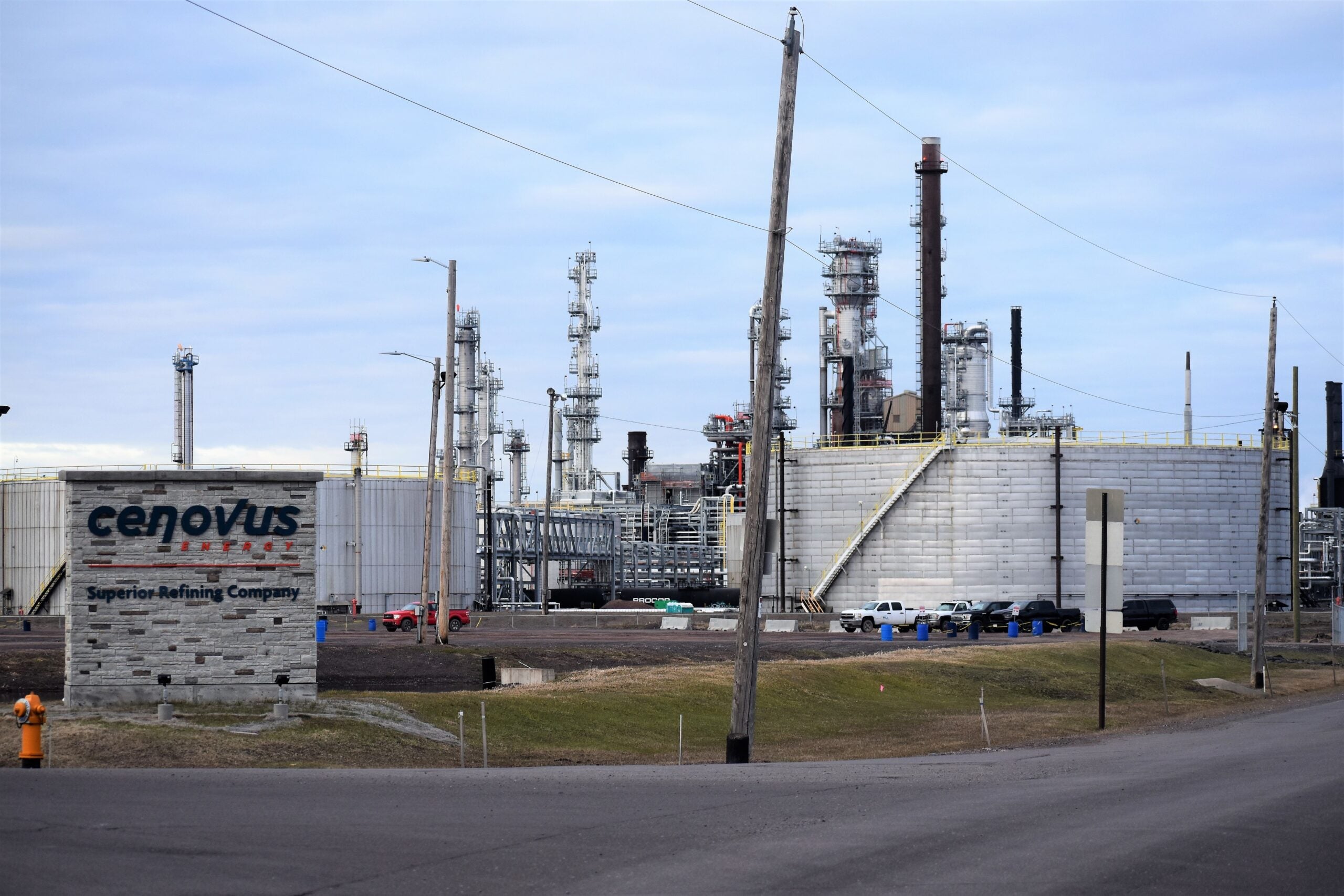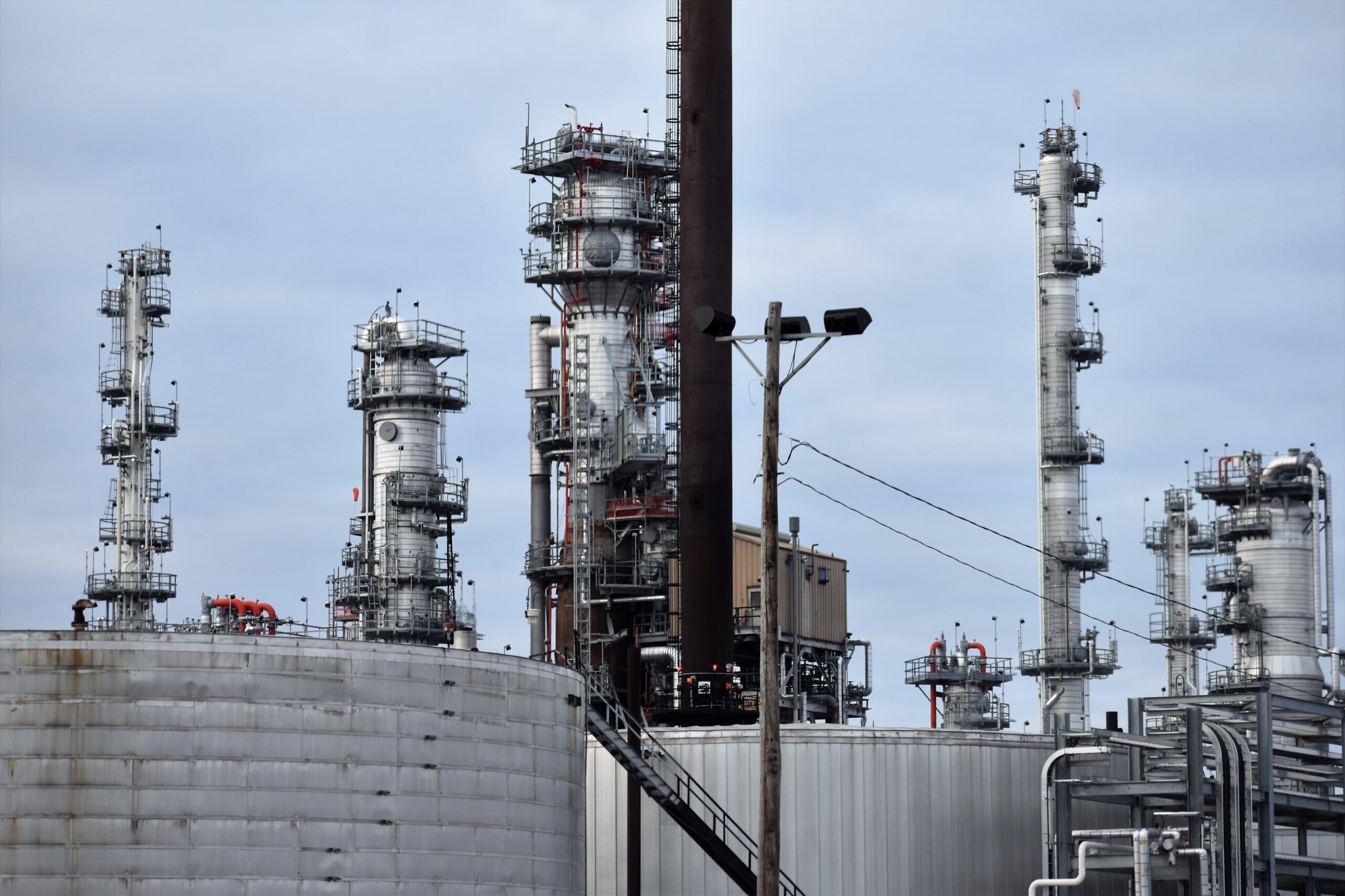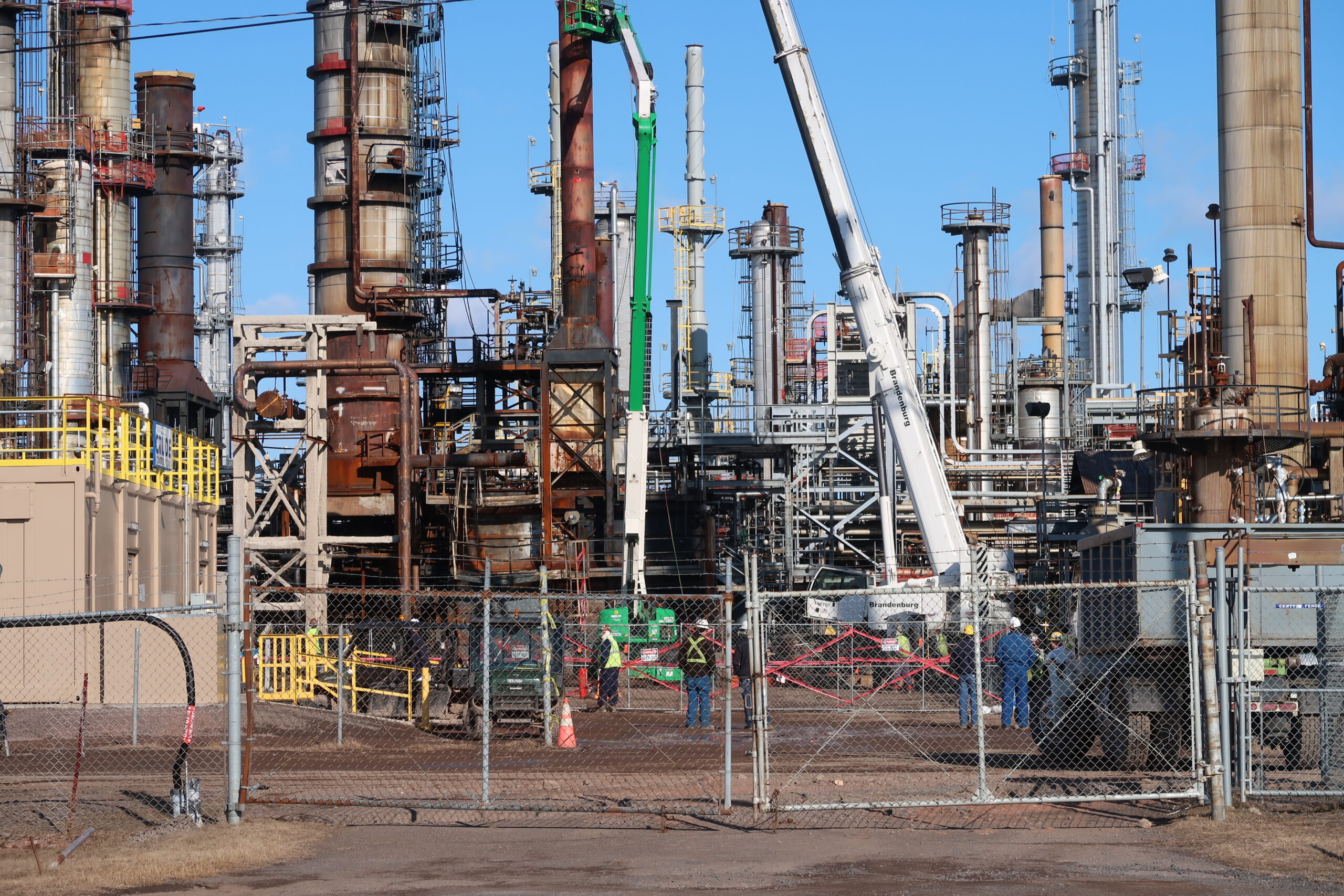Community members affected by the 2018 explosion at the Husky oil refinery in Superior will be able to seek compensation now that a $1 million settlement has been reached in a federal class-action lawsuit.
Husky Energy reached the $1.05 million agreement with Superior residents Jasen Bruzek, Hope Koplin and Christopher Peterson. The lawsuit was filed in August 2018 due to losses experienced as a result of an explosion and series of fires at the refinery April 26, 2018. The explosion caused a temporary evacuation of the city and injured three dozen people.
Husky is not admitting any wrongdoing or liability as part of the settlement.
Stay informed on the latest news
Sign up for WPR’s email newsletter.
Up to 20,000 community members are eligible for compensation. They must be 18 years old and older to seek compensation for things like lodging or lost wages stemming from the evacuation, as well as loss of the use of their property. Court documents show 28 percent of those people, or roughly 5,600 community members, could be compensated.
“The settlement provides an easy confidential way for people who were in Superior during the evacuation to receive $150 per person, and potentially as much as $200 per person or $400 per household,” said Gordon Rudd, attorney for the plaintiffs in a statement.
Bruzek, Koplin and Peterson will each receive up to $2,000 under the settlement. As a condition of the agreement, neither they nor their attorneys are allowed to make any disparaging statements against Husky or accuse the company of any wrongdoing.
People can now file a claim on a website that’s been created as part of the settlement or by contacting 1‐833‐677‐1092. All forms must be submitted online or through the mail no later than Nov. 3. Anyone who wishes to object to the settlement or wants to be excluded from it must also submit requests by that date.
A federal judge gave preliminary approval of the settlement Aug. 6, noting the maximum residents could have recovered was estimated to be $9.8 million.
“Settlement provides compensation now, while continued litigation poses a risk of significantly delaying any future award, if not an individual denial outright, as well as increased attorneys’ fee and costs,” wrote U.S. District Judge William M. Conley in his order.
The amount paid to individuals would be offset by any claims people already filed with Husky as part of a reimbursement program offered in the weeks following the explosion. Around 3,200 people filed claims and 1,700 received payments from Husky totaling $487,813.
Superior resident Kay McKenzie said she received $50 from the company that summer because she didn’t grow any crops in her garden due to concerns over fallout from the fire. She thinks the settlement amount is insufficient.
“We had to leave the city. I mean, we could afford it,” said McKenzie. “We know someone who had a cabin that my husband helped build, and they weren’t in town. We stayed there in Port Wing. But, some people couldn’t (afford to leave).”
The settlement doesn’t cover potential health or environmental impacts from the fires and explosion, she said. The community’s health has been sacrificed for jobs and tax revenues that large corporations provide, McKenzie continued.
The refinery has said it plans to spend $26 million each year on contractors and vendors when it resumes operations, as well as contribute $800,000 in tax revenues.
“It’s more than just that day,” she said. “It’s the whole issue of having these products in our community.”
She noted that Husky still plans to use hydrogen fluoride in its refining process despite calls from local leaders to transition to other alternatives. The chemical prompted the evacuation three years ago because it can be hazardous to human health if released. Husky has said there was no release during the incident and that it’s enhancing safety measures at the refinery.
If the settlement funds aren’t exhausted, up to $75,000 would be given to the Superior Douglas County Family YMCA.
A claim administrator, JND Legal Administration, will receive $169,000 from the settlement for the costs to notify and administer claims.
Under the lawsuit, residents claimed Husky was negligent when the explosion occurred at the refinery and didn’t adequately compensate residents. Husky, which does business as Superior Refining Company, has refuted those claims.
“Superior Refining Company maintained a claims process from the time of the incident until this settlement was enacted. It reimbursed thousands of approved evacuation-related expenses by residents, including for accommodation, food and lost wages. Individuals will not be able to collect for amounts already paid under the initial claims process,” said Husky spokesperson Kim Guttormson in an email. “Superior Refining Company, as set out in the settlement notice, has maintained it was not negligent in the incident.”
The Occupational Health and Safety Administration found Husky failed to inspect and test equipment to make sure it was fit for service, saying the incident could have been prevented. The Chemical Safety Board has said corrosion of a slide valve allowed oxygen and hydrocarbons to form a flammable mixture that ignited, causing the explosion.
Husky is still in the midst of a now nearly $1 billion effort to rebuild the refinery. The refinery, which normally employs around 200 workers, aims to resume operations in early 2023.
A final hearing to approve the settlement will be held Dec. 22.
Wisconsin Public Radio, © Copyright 2025, Board of Regents of the University of Wisconsin System and Wisconsin Educational Communications Board.



